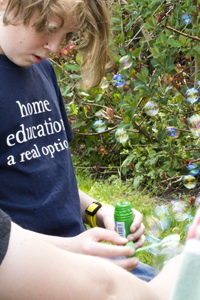Where and how to educate our children is one of the biggest decisions we make for them.
In England, Wales and Northern Ireland the law states that ‘The parent of every child of compulsory school age shall cause him to receive efficient full-time education suitable to: His age, ability and aptitude, and any special educational needs he may have, either by regular attendance at school or otherwise.’
Education, like every other aspect of our children’s lives, is our responsibility as parents. But it is an area where our options are often hidden and it is easy to make choices without fully exploring the possibilities. The three basic options are state school, independent school and home education.
What would suit your child and family?
What suits one child or family won’t necessarily suit another. Some people use a mix of educational settings depending on what works for each of their children at any particular time. And don’t forget it needs to work for your family as a whole too. And of course your choices are not set in stone, you can always change your mind and use another option later.
What would suit your child?
Think about your child’s personality, abilities, needs and interests. Are they academically inclined, or would a setting with greater emphasis on sports or music be a better choice? Is your child very active or sensitive and better suited to an informal education or a later start to formal education?
What environment would suit your child? Think about the number of children and age range in a class or group. Should activities be child-led or directed by an adult?
What would suit you and your family circumstances?
Do you want to be actively involved in your child’s education? Can you provide or arrange full time care for home education? If you would prefer an independent school do you have the ability to pay? Is a local state school a better option because of travel arrangements?
What are your family values and parenting style?
Any adult that spends a significant amount of time with your child is going to have a major impact on your child. It may be important to you to choose an education that supports your family values. This may mean a faith school, an academically selective school, or one with a strong environmental, spiritual or creative focus. Or do you prefer the personalized, learning through life experiences opportunities afforded by home education?
There are many different approaches to education. Which education options are available in your local state school? If you have a Free School locally you may find it has a different approach to other state schools. Do you need to consider independent schools or home education to meet your requirements?
What compromises are you able to make?
How and where your child is educated has immediate financial and social impacts, as well as the long term influence on your child.
Are you able to forgo a salary if you would prefer to home educate, or can you earn enough to pay school fees if you would prefer an independent school? Are you happy for your child to travel further or board to go to a school that fits your requirements better?
